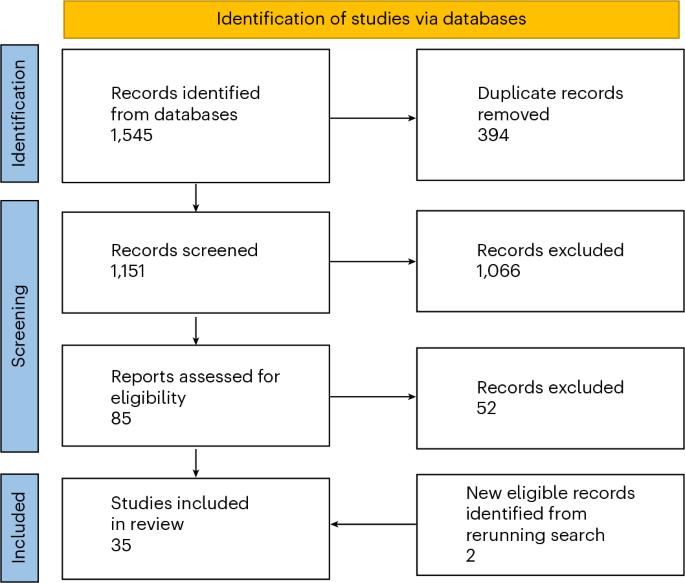Emotional enhancement of memory in Alzheimer’s disease dementia: a systematic review
IF 8.7
引用次数: 0
Abstract
Progressive decline in episodic memory is a hallmark of Alzheimer’s disease (AD). Emotional arousal is known to enhance memory. Enhanced encoding of emotionally arousing stimuli or events may improve memory in patients with AD; however, whether this effect is present in patients with AD remains unclear. Here we conducted a systematic search of the literature to identify relevant literature on emotional enhancement of memory in AD. Inclusion criteria were studies that (1) included individuals with Alzheimer’s disease and (2) assessed emotional memory, particularly episodic memory. Thirty-five studies were included. Twelve out of 35 studies (34.3%) showed clear emotional enhancement of memory for episodic memory among participants with mild AD, while 13 studies (37.1%) found no effect. Ten studies (28.6%) found that emotional enhancement of memory was influenced by stimuli type, valence of emotion, level of encoding or intensity of emotion. Studies including brain imaging showed that amygdala and hippocampus volume are strong predictors of emotional enhancement of memory in AD, regardless of level of cognitive impairment. Evaluating volumes or networks of brain regions known to be involved in emotional memory processing may be a key factor influencing the preservation of enhanced encoding of emotional information. Future studies are needed to confirm whether atrophy of memory-related brain regions diminishes emotional enhancement of memory in AD. Alzheimer’s disease (AD) is characterized by a decline in episodic memory, yet the potential for emotional arousal to enhance memory in patients with AD remains uncertain. Here the authors systematically review 35 studies, revealing that emotional enhancement of memory in AD is influenced by factors such as stimulus type and brain region volumes, suggesting potential therapeutic targets.

阿尔茨海默病痴呆患者的情绪增强记忆:系统综述
情节记忆的进行性衰退是阿尔茨海默病(AD)的一个标志。众所周知,情绪唤起可以增强记忆。增强情绪刺激或事件的编码可能改善AD患者的记忆;然而,这种效应是否存在于AD患者中尚不清楚。在此,我们进行了系统的文献检索,以确定AD患者情绪增强记忆的相关文献。纳入标准是:(1)纳入阿尔茨海默病患者;(2)评估情绪记忆,特别是情景记忆。纳入了35项研究。35项研究中有12项(34.3%)显示轻度阿尔茨海默病参与者的情景记忆的情绪明显增强,而13项研究(37.1%)发现没有效果。10项研究(28.6%)发现情绪对记忆的增强受刺激类型、情绪效价、情绪编码水平和情绪强度的影响。包括脑成像在内的研究表明,杏仁核和海马体体积是阿尔茨海默病患者情绪记忆增强的有力预测因子,与认知障碍水平无关。评估已知参与情绪记忆处理的大脑区域的体积或网络可能是影响保存增强的情绪信息编码的关键因素。未来的研究需要证实记忆相关大脑区域的萎缩是否会减少阿尔茨海默氏症患者记忆的情绪增强。阿尔茨海默病(AD)的特点是情景记忆下降,但情绪唤醒增强AD患者记忆的潜力仍不确定。在这里,作者系统地回顾了35项研究,揭示了阿尔茨海默病的情绪增强记忆受到刺激类型和脑区体积等因素的影响,并提出了潜在的治疗靶点。
本文章由计算机程序翻译,如有差异,请以英文原文为准。
求助全文
约1分钟内获得全文
求助全文

 求助内容:
求助内容: 应助结果提醒方式:
应助结果提醒方式:


